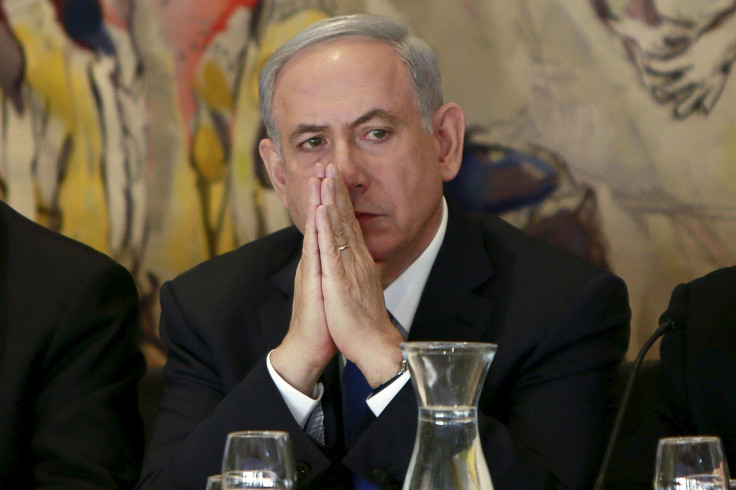Iran Deal Is A 'Nightmare' That Would Spark Middle East Nuclear Arms Race: Netanyahu

Israeli Prime Minister Benjamin Netanyahu called the framework agreement between Iran and the P5+1 group of nations -- China, France, Russia, Britain and the U.S., plus Germany -- over the Islamic Republic’s nuclear program “a dream deal for Iran and ... a nightmare deal for the world.” The agreement was reached by negotiators for the two sides in Switzerland on Thursday.
Netanyahu made his latest criticisms of the deal on NBC's “Meet the Press” Sunday morning. The Israeli prime minister has been the most outspoken critic of its framework, which he said gives Iran a clear path to building nuclear weapons, an assertion that U.S. President Barack Obama and his administration deny.
“One of the unfortunate, even tragic results of this deal ... is that it would spark an arms race among Sunni states, a nuclear arms race in the Middle East,” Netanyahu said. He added, “I think this deal is a dream deal for Iran and it's a nightmare deal for the world.”
Israel was not a party at the negotiations that led to the agreement, which includes provisions for access to Iran’s nuclear facilities by inspectors from the International Atomic Energy Agency and a ramp-down of those facilities in exchange for lifting sanctions imposed by the U.S., United Nations and European Union and United Nations during the past few decades. It is a preliminary deal that the parties expect to hash out in full by a June 30 deadline. So there’s a chance the entire agreement could still fall apart. And the Israeli prime minister was candid about his plans to “kill a bad deal."
“This is a deal that leaves Iran a capacity to produce the material for many, many nuclear bombs, and it does so by lifting the sanctions basically up-front, so Iran will have billions of dollars flowing through its coffers, not for schools, or hospitals or roads, but to pump up its worldwide terror machine and its military machine, which is busy conquering the Middle East as we speak,” Netanyahu said.
The Israeli prime minister, whose center-right Likud party recently won in legislative elections, has a checkered relationship with the Obama administration, which championed the agreement as a “historic understanding.” Obama promised to ink a deal with Iran during his first campaign for president, and, depending on how it turns out, it could be a defining moment for the Democratic president.
Republicans, who now control both the Senate and the House of Representatives, strongly oppose the agreement and have largely backed Netanyahu. Congressional Republicans created waves in early March when Speaker of the House John Boehner invited the Israeli prime minister to address Congress in advance of both the March 17 elections in Israel and the March 30 deadline for the Iran deal, which Netanyahu strongly criticized in his speech.
Subsequently, 47 Republican senators further rocked the boat when they signed a letter to Iranian leaders that warned they could ax any agreement signed by Obama.
Sen. Lindsey Graham of South Carolina was one of the lawmakers who signed that letter. He strongly criticized the deal on CBS' “Face the Nation” Sunday, even suggesting that likely Democratic 2016 presidential candidate Hillary Clinton could have negotiated a better agreement than Obama did.
“The best deal, I think, comes with a new president,” Graham said. “Hillary Clinton would do better. I think everybody on our side, except maybe Rand Paul, could do better.” He insisted that Congress should review, debate and vote on the deal before it becomes official.
© Copyright IBTimes 2025. All rights reserved.






















